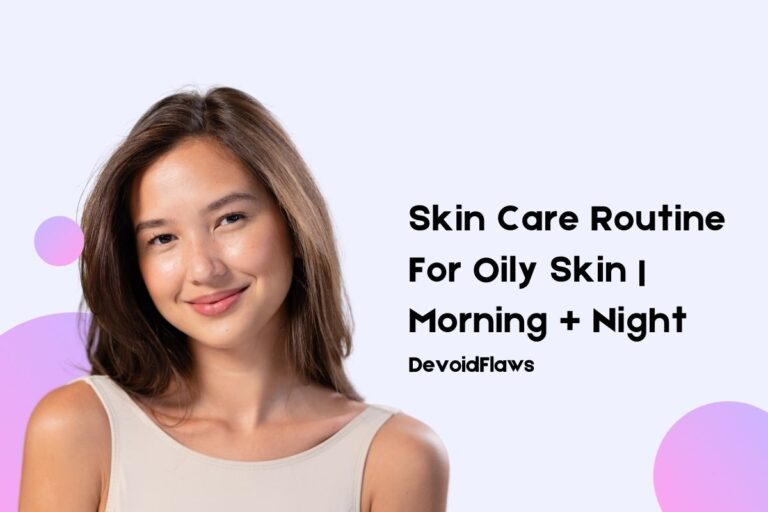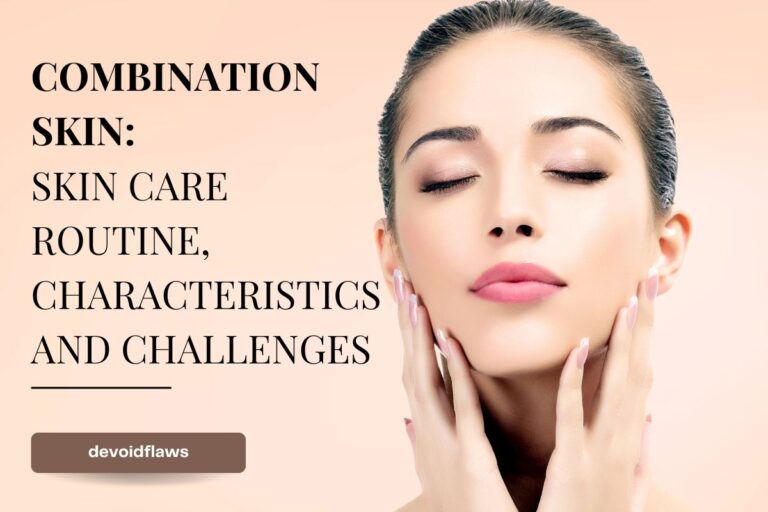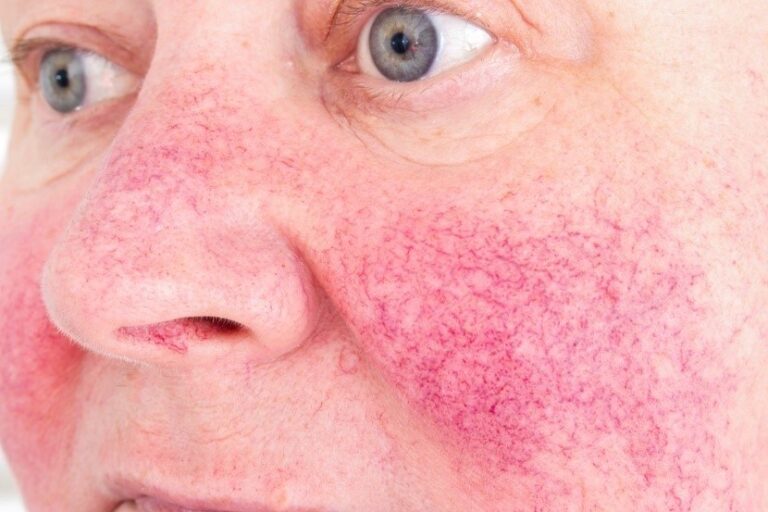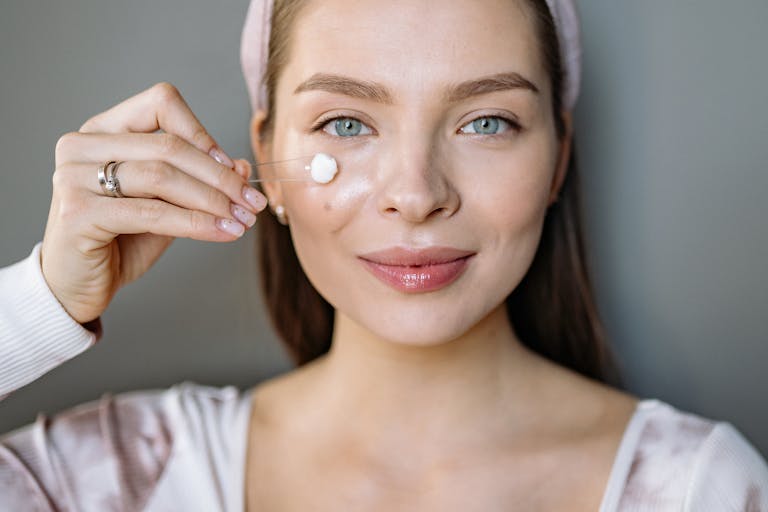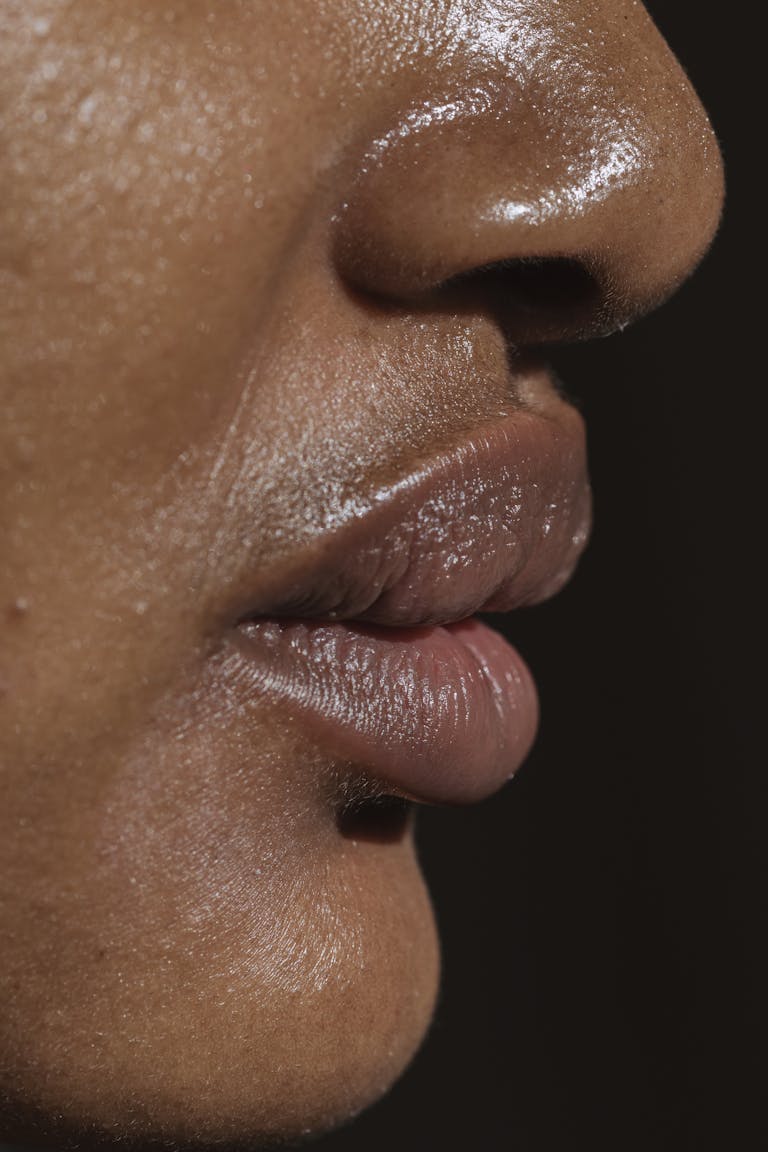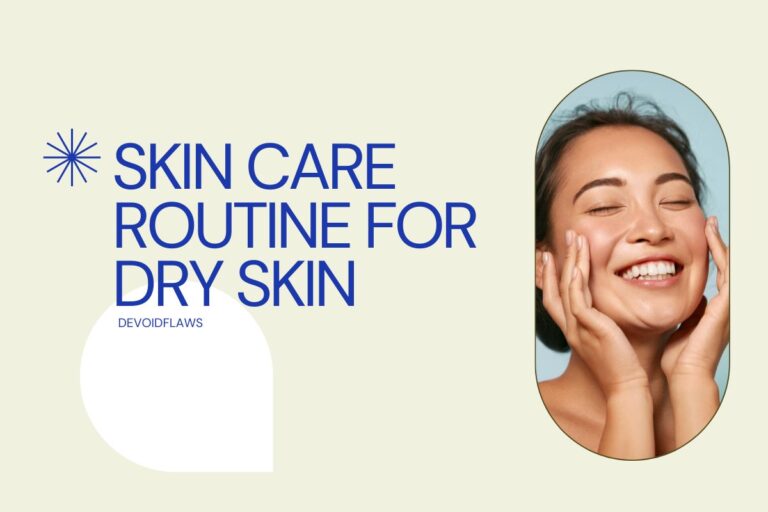Skin Care Routine for Acne
If you’re reading this, chances are you’ve had an unwanted encounter (or two… or ten) with the dreaded acne monster. Those pesky pimples, blackheads, and whiteheads seem to show up at the worst possible times, like right before a hot date or a big job interview.
But fear not, my friend!
You are not alone in this battle.
I’m here to tell you that achieving a clear and healthy complexion is totally possible.
And no, it doesn’t involve harsh chemicals or a gazillion-step routine.
It’s all about finding the right balance for your unique skin.
Keep reading to know more.
The Primary Cause of Acne
Acne isn’t caused by just one single thing, but rather a combination of factors that clog your pores and lead to inflammation.
Here’s a breakdown of the key players:
Clogged Pores
- Excess Oil (Sebum): Sebum is an oily substance produced by sebaceous glands attached to hair follicles. It helps keep your skin lubricated, but during puberty, hormones can cause these glands to go into overdrive and produce too much sebum. This extra oil can clog pores.
- Dead Skin Cells: Normally, skin cells shed regularly. But sometimes, dead cells build up on the skin’s surface and mix with sebum, forming a plug in the pore.
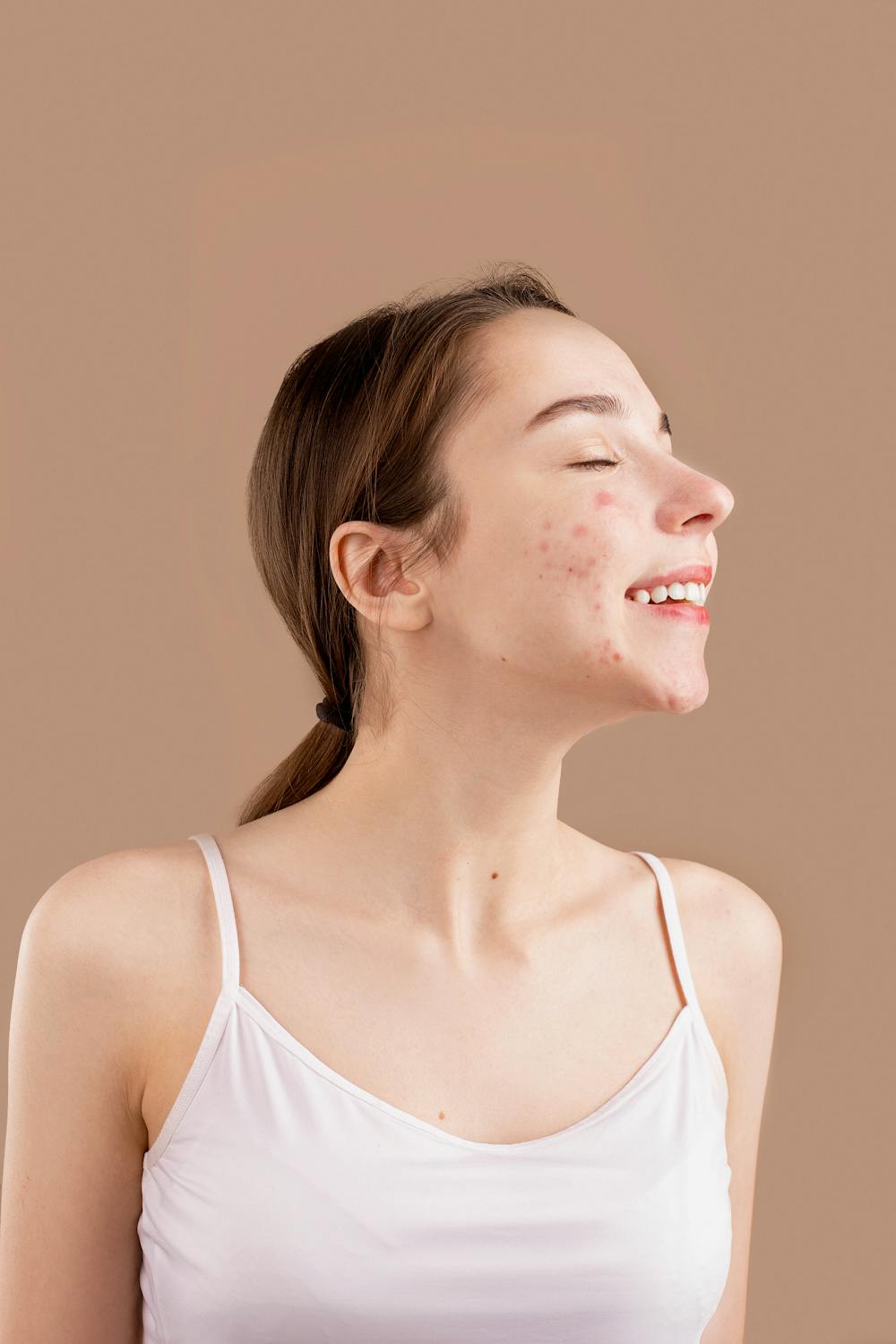
Bacteria
Normally, a type of bacteria called Propionibacterium acnes (C. acnes) lives harmlessly on our skin.
But when pores are clogged, C. acnes can multiply and trigger inflammation, leading to the redness and pus associated with pimples.
Inflammation
This is the body’s response to the clogged pores and bacteria. It’s what causes the redness, swelling, and pus that we see in pimples.
While these are the main culprits, other factors can influence acne:
- Hormonal Changes: Androgen hormones increase during puberty in both girls and boys, stimulating oil production. Hormonal fluctuations during menstruation and pregnancy can also worsen acne for some women.
- Medications: Certain medications, like corticosteroids, testosterone, or lithium, can contribute to acne.
- Diet: While research isn’t conclusive, some studies suggest a link between acne and a diet high in sugary or processed foods.
- Stress: Stress doesn’t directly cause acne, but it can worsen breakouts in people already prone to it.
What are the Most Effective Acne-Fighting Ingredients?
There are several highly effective ingredients that can help combat acne.
Here are some of the most common ones:
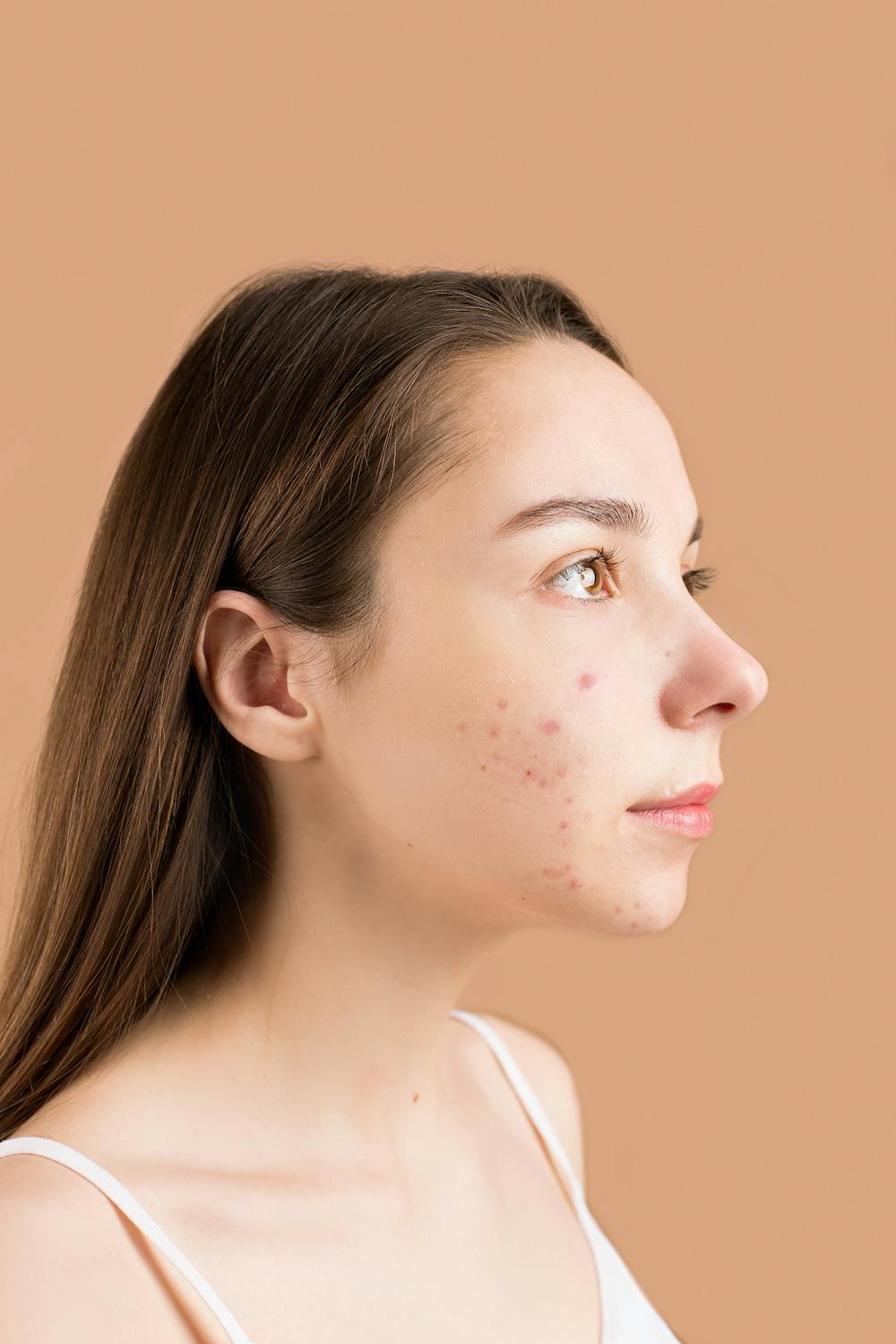
Benzoyl peroxide
This is a powerful ingredient that kills bacteria that contributes to acne breakouts. It can also help to reduce inflammation and unclog pores.
Benzoyl peroxide can be drying and irritating, so it’s important to start with a low concentration and increase gradually as tolerated.
Salicylic acid
A beta hydroxy acid (BHA) that exfoliates the skin and helps to unclog pores.
It’s a good choice for mild to moderate acne, particularly blackheads and whiteheads. Salicylic acid is generally well-tolerated, but it can also cause dryness and irritation.
Alpha hydroxy acids (AHAs)
These include glycolic acid, lactic acid, and mandelic acid.
AHAs work by exfoliating the top layer of skin, which can help to reduce breakouts and improve the appearance of scars.
AHAs can also be drying and irritating, so it’s important to start with a low concentration and increase gradually as tolerated.
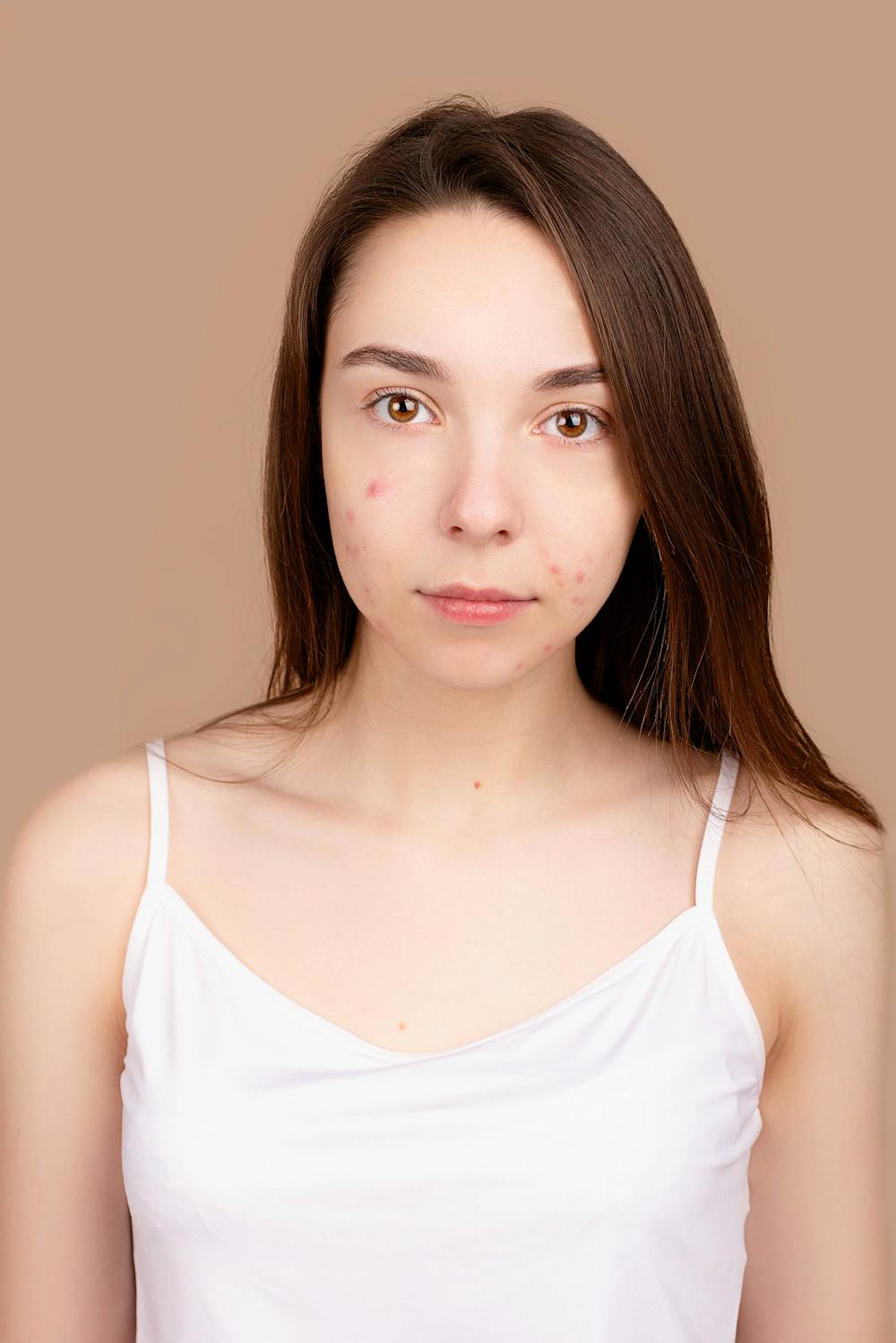
Adapalene
A topical retinoid that is available over-the-counter and by prescription.
Retinoids help to regulate skin cell turnover and reduce inflammation. They can be very effective for all types of acne, but they can also cause dryness, redness, and peeling, especially when first used.
Azelaic acid
This ingredient has antibacterial and anti-inflammatory properties. It can also help to lighten hyperpigmentation caused by acne.
Azelaic acid is generally well-tolerated, but it can cause a burning sensation or stinging when first applied.
The Step-By-Step Routine For Controlling and Preventing Acne
Morning Skincare Routine For Acne
Cleanse
Washing your face in the morning is crucial to remove the sweat, oil, and dead skin cells that accumulate overnight. These can clog pores and contribute to breakouts.
However, for acne-prone skin, it’s important to find a balance between removing excess oil and maintaining your skin’s natural moisture barrier.
Here’s what to look for in a cleanser:
- Gentle: Harsh cleansers can strip your skin’s natural oils, leading to dryness and irritation, which can actually worsen acne. Look for cleansers labeled “gentle” or “for sensitive skin.”
- Oil-Free: Opt for an oil-free cleanser to remove excess oil without clogging pores. Gels, foams, or micellar waters are good options.
- Balancing: Some cleansers contain ingredients that can help regulate oil production, like salicylic acid or niacinamide. These can be beneficial for acne-prone skin.
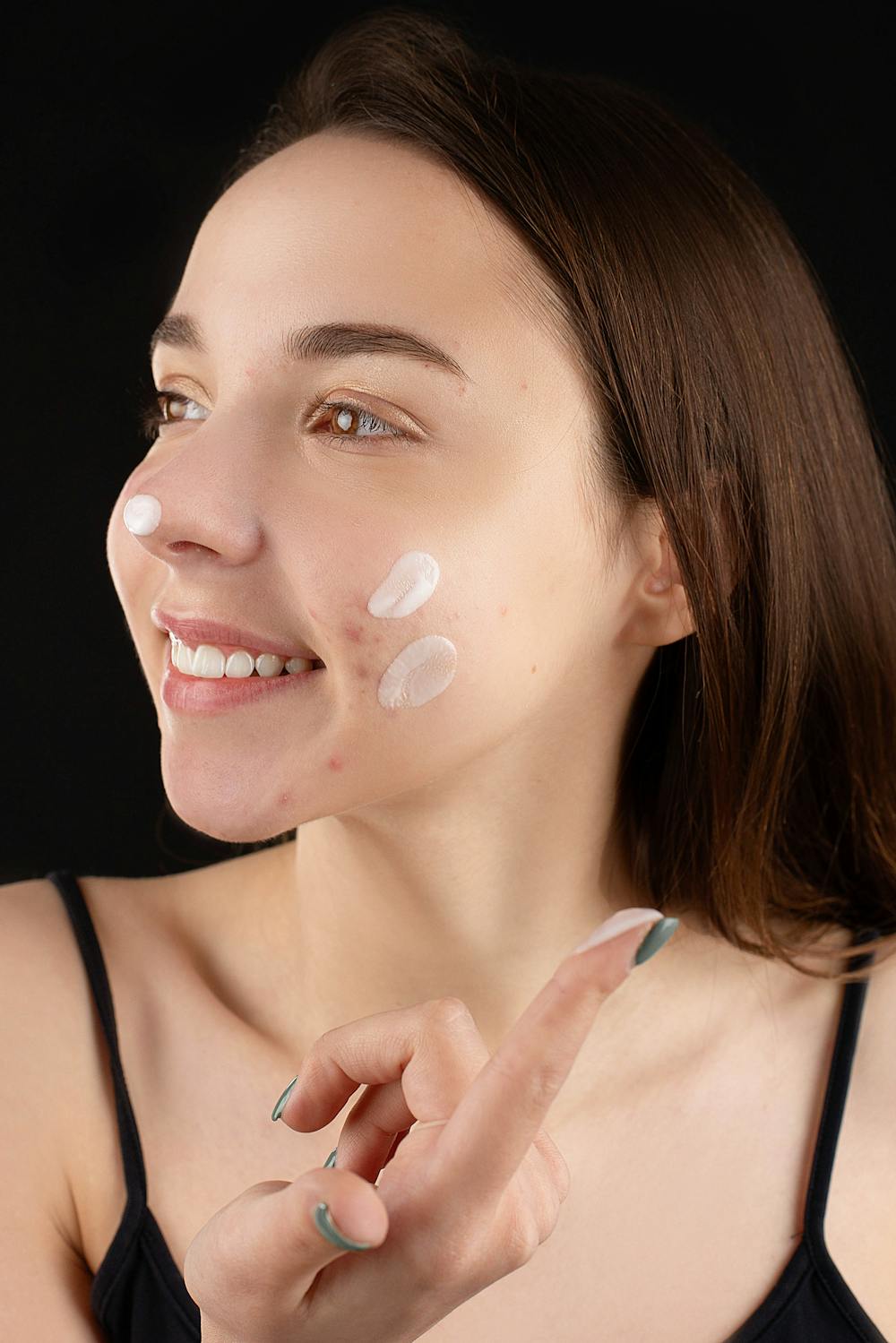
Treat (Optional)
Topical acne treatments can be very effective in managing breakouts. However, they can sometimes be drying or irritating.
Here’s how to incorporate them into your morning routine if you choose to use them:
- Type of Medication: Common topical acne medications include benzoyl peroxide and salicylic acid. These work by killing bacteria and reducing inflammation.
- Application: Apply a thin layer of the medication only to the affected areas after cleansing and drying your face completely. Avoid applying it to the entire face, especially around the eyes and mouth, as these areas are more sensitive.
- Moisturizer is Key: Even if you’re using a topical acne treatment, it’s crucial to follow up with a moisturizer. This will help prevent your skin from drying out, which can trigger more breakouts.
Moisturize
While it might seem counterintuitive to moisturize acne-prone skin, it’s actually an essential step.
When your skin feels dry and stripped, it can go into overdrive producing oil to compensate. This excess oil can clog pores and lead to breakouts.
Here’s what to look for in a moisturizer for acne-prone skin:
- Lightweight: Choose a lightweight, oil-free moisturizer that absorbs quickly and won’t leave your skin feeling greasy. Gels or lotions are good options.
- Hydrating: Look for ingredients like hyaluronic acid or glycerin, which draw moisture into the skin and keep it hydrated.
- Non-comedogenic: This label indicates that the product is formulated not to clog pores.
Sunscreen
Sun exposure can worsen acne in several ways. It can increase oil production, trigger inflammation, and lead to hyperpigmentation (dark spots) after breakouts heal.
Here’s why sunscreen is a non-negotiable step in your morning routine:
- Broad-Spectrum Protection: Choose a broad-spectrum sunscreen that protects against both UVA and UVB rays. UVA rays penetrate deep into the skin and can contribute to premature aging and wrinkles, while UVB rays are responsible for sunburns and can worsen acne breakouts.
- SPF 30 or Higher: An SPF of 30 or higher is recommended for daily use. For extended outdoor activity, consider a higher SPF and reapply sunscreen every two hours.
- Oil-Free and Non-comedogenic: Look for a sunscreen that is labeled oil-free and non-comedogenic to avoid clogging pores.
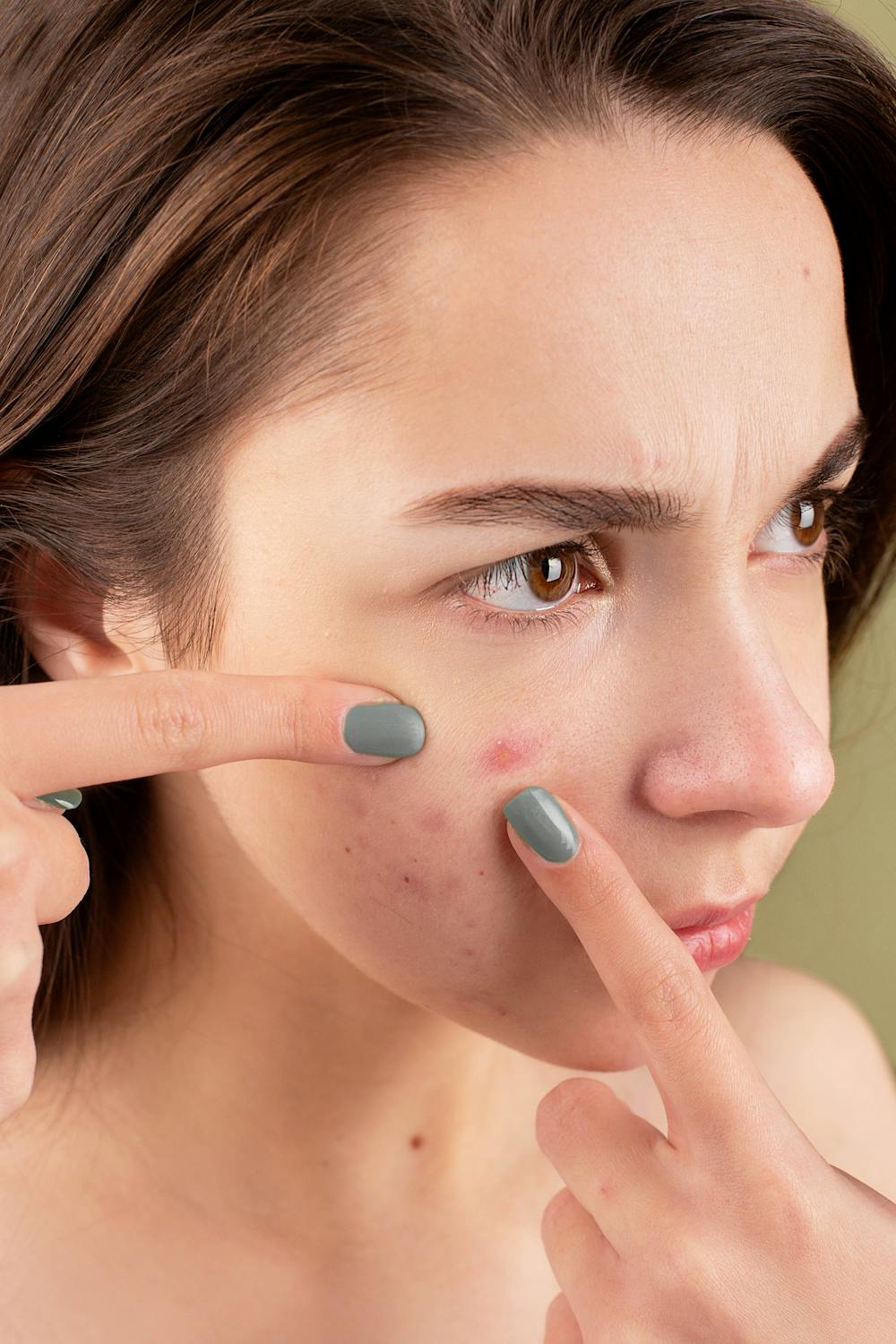
Night Skin Care Routine For Acne
Nighttime is when your skin goes into repair mode. This is the perfect opportunity to target acne with stronger treatments and replenish your skin’s moisture barrier.
Here’s a breakdown of the routine that you can try:
Cleanse
Just like in the morning, cleansing is the first step to remove dirt, oil, and makeup buildup that can clog pores and contribute to breakouts.
Since you’ve likely been wearing sunscreen and makeup throughout the day, you can repeat the cleansing step from your morning routine.
Opt for the same gentle, oil-free cleanser to avoid stripping your skin’s natural oils.
Treat
Nighttime is when you can introduce stronger acne medications because your skin has more time to absorb them and recover from any potential irritation.
Here are some things to consider:
Types of Treatments
Options include retinoids (vitamin A derivatives), salicylic acid at higher concentrations, or benzoyl peroxide in a leave-on formula. These work by increasing cell turnover, exfoliating dead skin cells, killing bacteria, and reducing inflammation.
Targeted Application
Apply the medication only to the affected areas after cleansing and drying your face completely. Avoid applying it to the entire face, especially around the eyes and mouth, as these areas are more sensitive.
Start Slow
If you’re new to these medications, it’s best to start by using them just a few nights a week to allow your skin to adjust. Gradually increase frequency as tolerated.
Moisturize
Similar to your morning routine, moisturizing is essential at night to keep your skin hydrated and prevent it from overproducing oil.
Here’s what to look for in your nighttime moisturizer:
- Nourishing: Nighttime moisturizers can be slightly richer than daytime ones to provide deeper hydration. Look for ingredients like ceramides, hyaluronic acid, or shea butter.
- Soothing: If your skin is feeling irritated from acne treatments, consider a moisturizer with calming ingredients like colloidal oatmeal or aloe vera.
- Non-comedogenic: As always, choose a formula that won’t clog your pores.
By incorporating these steps into your nighttime routine, you can give your skin the chance to heal and fight acne breakouts while keeping it healthy and balanced.
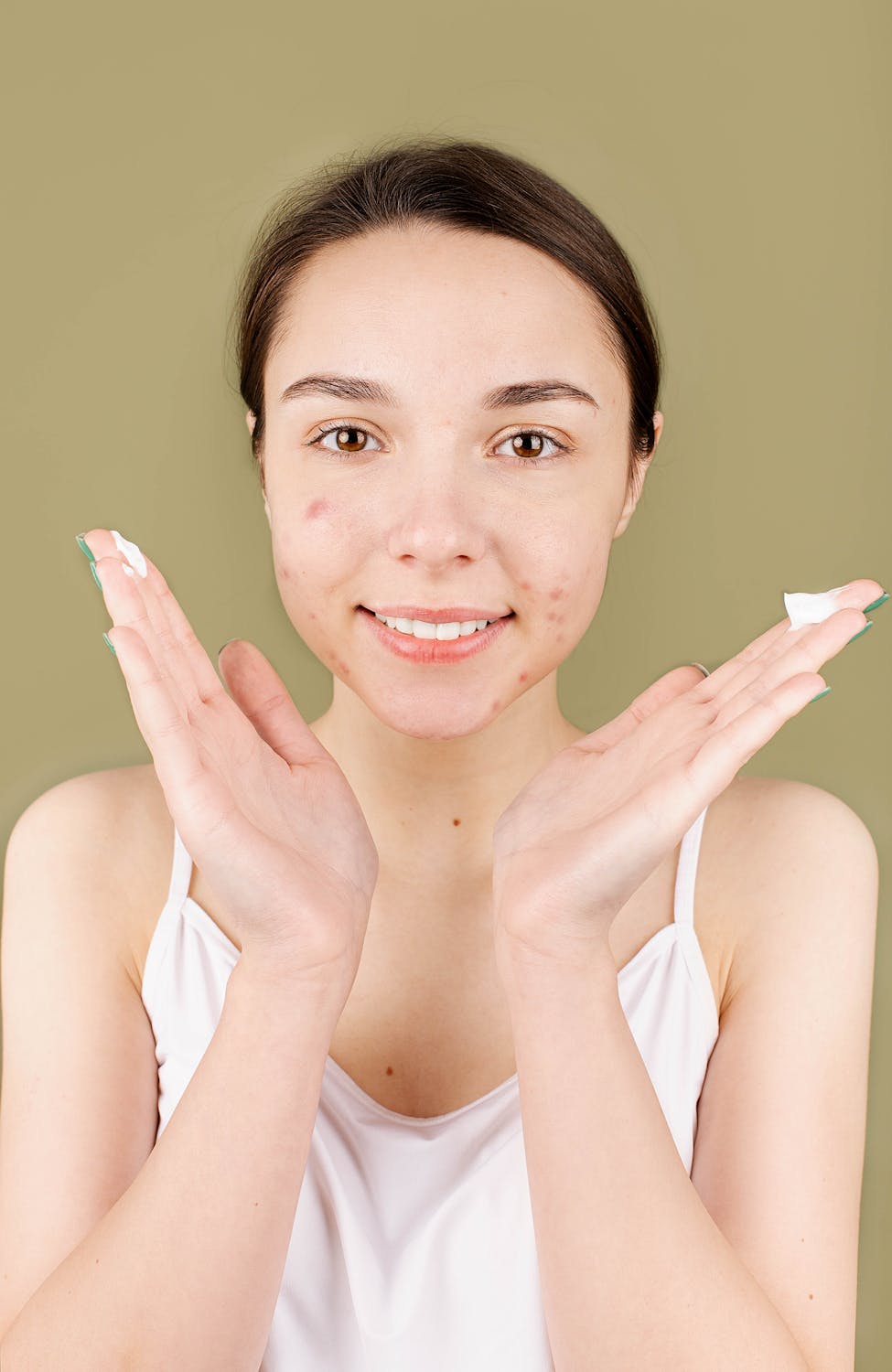
Additional Tips
Be Gentle
Acne can be tempting to tackle aggressively, but harsh scrubbing and abrasive washes can actually worsen breakouts.
These methods damage the skin’s delicate barrier, leading to inflammation and irritation, which can create a perfect environment for acne bacteria to thrive.
Instead, cleanse your face with gentle, circular motions and lukewarm water. Pat your skin dry with a soft towel, avoiding harsh rubbing.
Hands Off the Pimples!
It’s tempting to pick at pimples, but resist the urge! Picking can introduce bacteria to the blemish, increasing inflammation and the risk of scarring.
If a pimple comes to a head, it’s best to leave it alone and let it heal naturally.
Change Your Pillowcases Often
Your pillowcase can harbor dirt, oil, and dead skin cells throughout the week. This buildup can transfer to your face at night, clogging pores and contributing to breakouts.
To minimize this risk, wash your pillowcases in hot water at least once a week, and ideally more often if you sweat a lot at night.
Consult a Dermatologist
If your acne is severe, persistent, or not responding to over-the-counter treatments, it’s important to consult a dermatologist.
They can assess your individual needs and recommend stronger prescription medications, such as oral antibiotics or topical retinoids.
Additionally, a dermatologist can provide guidance on other treatment options like light therapy or chemical peels. By seeking professional help, you can develop a personalized plan to achieve clearer and healthier skin.

